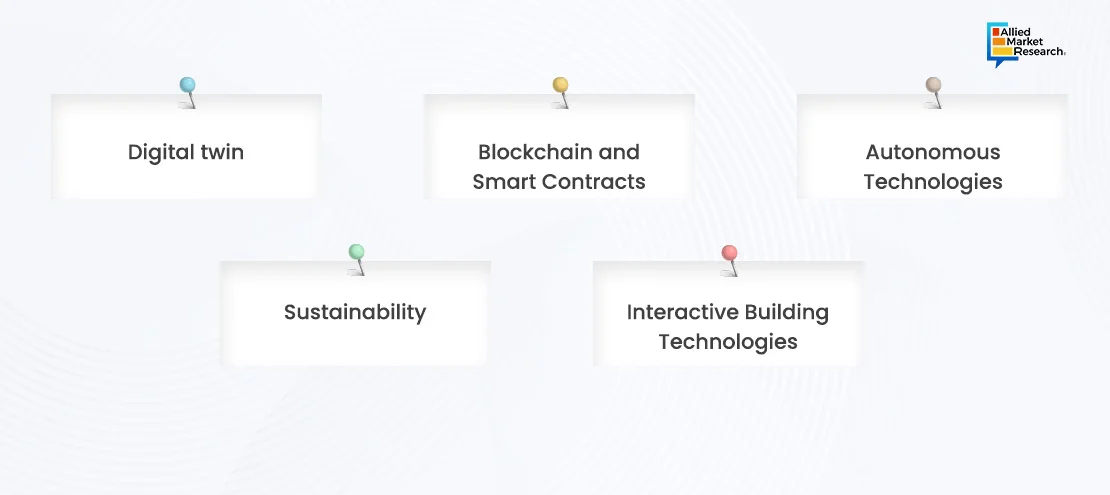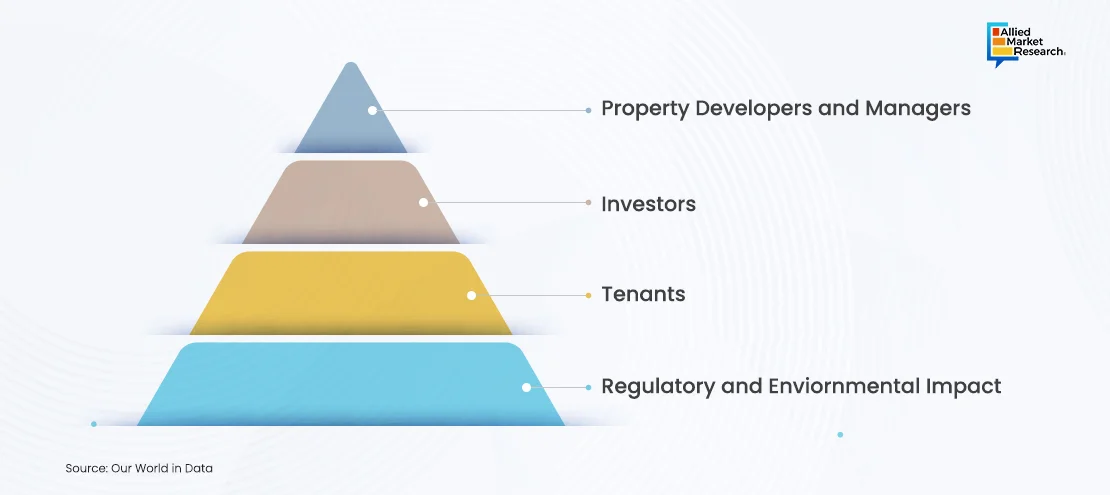Table Of Contents
- Innovative Technologies Shaping the Future of Real Estate
- Impact of Proptech on Real Estate Stakeholders
- Case Study: Enhancing Mobile App Performance and Fraud Prevention for Property Finder
- Company Overview
- Challenges
- Lack of unified performance metrics: With campaigns running across multiple media partners, the team struggled with a fragmented view of performance. There was no single source of truth for cross-partner attribution of app installs and in-app events, leading to inefficient data management and siloed performance insights.
- Data accuracy issues: The team faced challenges in scaling their internal infrastructure to accurately capture and process app installations and in-app events. Server outages and system errors led to data gaps, affecting the integrity of real-time campaign optimization and user experience.
- Mobile Ad fraud: The expansion to new ad networks and partners brought about increased suspicious activity. Abnormal traffic patterns, unrealistic click volumes, and conversion rates indicated potential ad fraud. The team also faced issues with authenticating app installs, as sudden traffic spikes suggested possible spamming and spoofing.
- Solutions
- Implementation with Kochava
- Unified attribution data: Kochava's extensive network of integrated partners allowed Property Finder to consolidate all growth partners across various channels, including social, display, video, and connected TV. This provided a single source of truth for cross-partner attribution, eliminating the need to access multiple dashboards and enabling seamless campaign optimization for enhanced growth and return on ad spend.
- Stabilized measurement and ETL processes: By integrating the Kochava SDK into their iOS and Android apps, Property Finder mitigated the infrastructure issues that led to outages and data gaps. The SDK’s built-in redundancy features ensured a 99.9% uptime, stabilizing the measurement of app installs and in-app events and streamlining the extract, transform, and load (ETL) processes across their marketing tech stack.
- Enhanced fraud detection and prevention: Kochava’s real-time fraud prevention tools were activated to combat mobile ad fraud. Advanced machine learning algorithms detected and blocked anomalous traffic, preventing fraudulent parties from receiving payments for fake traffic. The server-side authentication technology also identified and blocked spoofed install payloads.
- Impact
- 700K+ new app installations: Accurate cross-partner attribution facilitated the acquisition of over 700,000 new app installations.
- 1.3M+ app installs and 170M+ in-app events: The Kochava SDK ensured precise measurement and authentication of over 1.3 million app installs and 170 million in-app events.
- 2.15M fraudulent clicks and 400K+ fake install payloads blocked: Real-time fraud detection prevented 2.15 million fraudulent clicks and blocked over 400,000 fake install payloads.

Onkar Sumant

Koyel Ghosh
Proptech Revolution: Transforming Real Estate through Technology and Innovation

The journey of Proptech, or property technology, has been one of remarkable transformation, evolving from basic digital tools to a sophisticated ecosystem that is reshaping the real estate industry. Initially, Proptech was synonymous with the digitization of property listings and the introduction of online platforms that connected buyers and sellers. However, over the past decade, it has transformed real estate development, management, and transactions.
The early stages of Proptech were focused on improving efficiency and transparency in property transactions. Online platforms like Zillow and Trulia, which emerged in the early 2000s, provided consumers with unprecedented access to property data, changing the way people searched for homes. This digitization phase was marked using websites and mobile apps to streamline real estate transactions and enhance user experiences.
As technology advanced, so did the capabilities of Proptech. The integration of artificial intelligence, blockchain, and big data analytics brought about a new era of innovation. Companies like Prophia have utilized AI to streamline intricate processes such as lease abstraction and due diligence in commercial real estate. Their AI-powered solutions are transforming how industry leaders manage portfolios and make investment decisions, allowing for real-time data analysis and more informed decision-making?.
In recent years, the focus has shifted toward sustainability and the environmental impact of real estate. Proptech companies are now playing a significant role in addressing global challenges such as climate change. For instance, in June 2023, the U.S. General Services Administration (GSA) announced plans to allocate nearly $1 billion from the Inflation Reduction Act (IRA) to retrofit federal buildings with sustainable technologies. This initiative aims to reduce carbon emissions and achieve net-zero status for a significant portion of the federal building portfolio. Kelvin, a Proptech company specializing in energy-efficient systems, is one of the companies involved in this federal project. Their hybrid technology, combining traditional heating systems with innovative heat pumps, showcases how Proptech is advancing sustainable real estate.
Moreover, companies in the domain are increasingly using mergers and acquisitions (M&A) to consolidate and scale their innovations. The sector has witnessed significant M&A activity, with legacy real estate firms acquiring innovative startups to integrate cutting-edge technology into their operations. This trend is expected to continue, as companies try to stay competitive in a changing market?.
Through the integration of advanced technologies and a focus on sustainability, Proptech is not only transforming how properties are bought, sold, and managed but is also addressing some of the most pressing challenges faced by the global real estate market today.
Innovative Technologies Shaping the Future of Real Estate
The real estate industry is experiencing a profound transformation driven by innovative technologies that are reshaping how properties are developed, managed, and experienced. These advancements are not only boosting efficiency but also dealing with issues like sustainability and operational effectiveness.
One of the most impactful technologies is Digital Twin technology, which creates virtual replicas of physical buildings. This allows property managers to monitor real-time operations, perform predictive maintenance, and optimize energy consumption without interfering with the actual building operations. For instance, the use of digital twins has enabled property managers to simulate various scenarios to enhance building performance and reduce energy waste, which plays an important role in the drive toward sustainability.

Blockchain and smart contracts are also revolutionizing real estate transactions. Blockchain technology provides a transparent and immutable ledger for property transactions, reducing the risk of fraud and enhancing trust among parties. Smart contracts, which are self-executing contracts with the terms of the agreement directly written into code, automate processes like lease agreements, ensuring they are executed promptly and accurately. This reduces administrative burdens and human errors, making property transactions more efficient and secure?.
In the realm of building maintenance, autonomous technologies like robot-assisted cleaning and drone inspections are becoming increasingly popular. These technologies ensure consistency in routine maintenance tasks along with improving safety and thoroughness, particularly in high-rise structures. Drones, for example, are now commonly used for building inspections, allowing for detailed assessments that would be difficult and dangerous for humans to perform manually?.
Sustainability is another key focus area for Proptech innovations. Technologies aimed at creating smart and green buildings are on the rise, driven by both regulatory requirements and consumer demand. In cities like New York and Boston, local laws such as Local Law 97 and BERDO 2.0 mandate significant reductions in carbon emissions from buildings. These regulations are accelerating the adoption of Proptech solutions that improve energy efficiency and reduce environmental impact. Proptech companies are increasingly integrating automation, monitoring, and control technologies into older buildings, enabling them to meet these stringent sustainability standards?.
Finally, interactive building technologies that utilize IoT devices and augmented reality are enhancing tenant experiences and building management. These technologies enable real-time communication between building managers and occupants and allow for dynamic adjustments to environmental conditions within buildings, thereby improving comfort and efficiency. Augmented reality is also being used for facilities management, overlaying important data on physical assets to streamline operations and minimize downtime?.
When these innovative technologies are shaping the future of real estate, they are also ensuring that the industry can deal with the obstacles of tomorrow, from sustainability to operational efficiency and beyond.
Impact of Proptech on Real Estate Stakeholders
Proptech has had a transformative impact on the various stakeholders within the real estate industry, enhancing efficiency, sustainability, and decision-making processes across the board. Whether you're a property developer, manager, investor, or tenant, the adoption of Proptech solutions is reshaping your role and interactions within the real estate ecosystem.
Property developers and managers: For developers and property managers, Proptech offers a range of tools that streamline operations and reduce costs. Automation technologies, such as those implemented by Northspyre, are revolutionizing the management of commercial real estate projects. These tools automate workflows like data entry, reporting, and invoicing, which significantly reduce operational costs and minimize human error. Additionally, cloud migration is enabling developers to centralize data and simplify file sharing among stakeholders, further enhancing efficiency on intricate projects?.

Investors: Investors are leveraging data analytics and predictive technologies to make more informed decisions. Proptech tools allow investors to analyze vast datasets, revealing market trends and investment opportunities that might otherwise go unnoticed. This capability enables more accurate property valuations and risk assessments, leading to better investment outcomes and greater market stability?. The integration of AI in these tools has further enhanced their predictive power, helping investors anticipate market shifts and adjust their portfolios accordingly?.
Tenants: For tenants, Proptech is enhancing the living experience through innovations such as virtual tours and augmented reality. These technologies allow potential buyers and renters to explore properties remotely, offering a more immersive and interactive experience than traditional images or videos. Furthermore, smart home devices and IoT technologies are making residential spaces more connected and user-friendly, improving comfort and security?.
Regulatory and environmental impact: The regulatory landscape is also evolving in response to Proptech innovations. Governments are increasingly imposing regulations that require the use of sustainable building technologies, compelling property owners and developers to adopt greener practices. This trend is evident in cities like New York, where laws such as Local Law 97 mandate significant reductions in carbon emissions from buildings. Proptech companies are responding by developing solutions that help stakeholders comply with these regulations while also reducing operational costs and environmental impact?.
Proptech is driving significant changes across the real estate industry, benefiting all stakeholders by improving efficiency, sustainability, and decision-making. As technology continues to evolve, its impact on the industry is likely to grow even further, making it an essential component of modern real estate management and development.
Case Study: Enhancing Mobile App Performance and Fraud Prevention for Property Finder
Company Overview
Founded in 2005, Property Finder is a leading real estate platform in the Middle East dedicated to helping individuals and families find not just a better home, but also a brighter future. Each year, Property Finder supports millions in their search for improved living conditions and opportunities.
Challenges
To enhance user access and engagement, Property Finder focused on expanding their mobile app presence for both iOS and Android users. The company's paid media team invested in user acquisition campaigns across various media partners to optimize their omnichannel measurement strategy. However, they encountered several challenges:
Lack of unified performance metrics: With campaigns running across multiple media partners, the team struggled with a fragmented view of performance. There was no single source of truth for cross-partner attribution of app installs and in-app events, leading to inefficient data management and siloed performance insights.
Data accuracy issues: The team faced challenges in scaling their internal infrastructure to accurately capture and process app installations and in-app events. Server outages and system errors led to data gaps, affecting the integrity of real-time campaign optimization and user experience.
Mobile Ad fraud: The expansion to new ad networks and partners brought about increased suspicious activity. Abnormal traffic patterns, unrealistic click volumes, and conversion rates indicated potential ad fraud. The team also faced issues with authenticating app installs, as sudden traffic spikes suggested possible spamming and spoofing.
Solutions
Property Finder turned to Kochava, a mobile measurement partner (MMP), to address these challenges and improve their measurement and attribution capabilities for their mobile apps across both the Google Play Store and Apple App Store.

Implementation with Kochava
Unified attribution data: Kochava's extensive network of integrated partners allowed Property Finder to consolidate all growth partners across various channels, including social, display, video, and connected TV. This provided a single source of truth for cross-partner attribution, eliminating the need to access multiple dashboards and enabling seamless campaign optimization for enhanced growth and return on ad spend.
Stabilized measurement and ETL processes: By integrating the Kochava SDK into their iOS and Android apps, Property Finder mitigated the infrastructure issues that led to outages and data gaps. The SDK’s built-in redundancy features ensured a 99.9% uptime, stabilizing the measurement of app installs and in-app events and streamlining the extract, transform, and load (ETL) processes across their marketing tech stack.
Enhanced fraud detection and prevention: Kochava’s real-time fraud prevention tools were activated to combat mobile ad fraud. Advanced machine learning algorithms detected and blocked anomalous traffic, preventing fraudulent parties from receiving payments for fake traffic. The server-side authentication technology also identified and blocked spoofed install payloads.
Impact
Over a 90-day period, Property Finder achieved significant improvements:
700K+ new app installations: Accurate cross-partner attribution facilitated the acquisition of over 700,000 new app installations.
1.3M+ app installs and 170M+ in-app events: The Kochava SDK ensured precise measurement and authentication of over 1.3 million app installs and 170 million in-app events.
2.15M fraudulent clicks and 400K+ fake install payloads blocked: Real-time fraud detection prevented 2.15 million fraudulent clicks and blocked over 400,000 fake install payloads.
The integration of Kochava's solutions proved transformative for Property Finder, enhancing their ability to measure performance accurately, optimize campaigns effectively, and safeguard against mobile ad fraud.
The PropTech revolution is reshaping the real estate landscape, driving innovation through advanced technologies like blockchain, AI, and smart contracts. These technologies are enhancing efficiency, transparency, and user engagement, benefiting all stakeholders—from developers and investors to end-users. The future of real estate depends on the seamless integration of these technologies, enabling businesses to stay competitive while addressing the increasing demand for sustainability and trust, ultimately creating a more connected, efficient, and transparent market.
Allied Market Research delves into the rapidly evolving PropTech industry, providing in-depth analyses of technological innovations, market dynamics, and regulatory frameworks shaping the sector. Our detailed reports offer stakeholders importantinsights into how PropTech enhances efficiency, fosters transparency, and drives sustainability in real estate. These insights empower businesses to capitalize on emerging opportunities, innovate, and lead in the future of real estate.
Contact our experts today for a comprehensive analysis of growth drivers and investment opportunities within the PropTech landscape!

